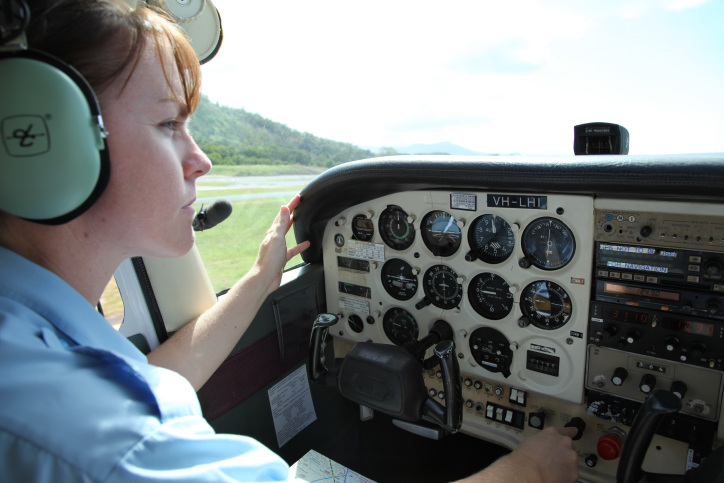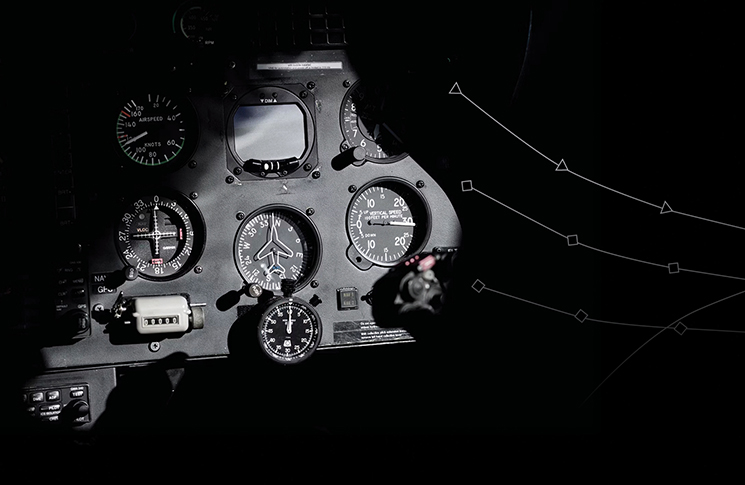How are you? Are you OK?
How many times have you asked, or been asked, that question in recent months? Now consider – how many times you have answered that question with genuine honesty?
COVID-19 and an unsettled world have left many of us experiencing some form of mental distress in our recent lives. Despite a good awareness of the issues and a willingness to help our friends and colleagues, however, we find it hard to acknowledge our own issues and seek help. It’s Australian stoicism at its best.
The latest report on Australia’s mental health and wellbeing has confirmed our suspicions that mental distress is more common than ever but seeking help remains difficult for many. Barriers to self-care and to help-seeking are particularly strong among professional groups.
Pilots and air traffic controllers have challenging and responsible jobs and were deeply affected as an industry by the pandemic. And yet they are expected to be the archetypal ‘ten foot tall and bullet-proof’ professionals whose livelihoods depend on being 100 per cent fit and well. The current aviation medical system poses a significant barrier to aviation professionals seeking help or disclosing a mental health condition because of the fear of losing their licence.
That’s why pilots and controllers can find acknowledging their own distress and reaching out for help a difficult step.
Instead, they may choose to keep their difficulty secret and persevere with untreated mental distress. Not only does this affect their own health, it also impacts their family, their workplace, and increases the chances of it developing into a more serious illness.
Mental health issues can impact people in a variety of ways, from sleeplessness or excessive worry, low mood, through to a formal diagnosis of mental illness. We want the symptoms to be approached by pilots in the same way as other common health issues, such as cardiac problems and diabetes, that can often be managed safely while still holding an aviation medical certificate.
There’s a spectrum of mental issues and Australia has a robust and effective regulatory system for maintaining safety and dealing with serious illness. But we also need to deal with milder issues we all experience.
An innovative concept recently presented by CASA to the international body overseeing aviation, the International Civil Aviation Organization (ICAO), addresses the barriers preventing pilots and controllers seeking help.
Our working paper suggested that ICAO develop guidance and risk assessment tools to help medical examiners and regulators decide whether and how a pilot or controller experiencing symptoms of mental distress can keep flying and stay engaged with their industry.
Safety is always paramount and needs to remain that way. A critical part of Australia’s proposal for safe management is played by peer support workers. These peers would be aviation industry professionals who would truly understand the pressures and barriers that affected pilots and controllers are experiencing. In collaboration with qualified mental health care teams approved by the regulator, peers could offer support from within the industry. This means pilots and controllers with symptoms that can be safely managed don’t need to deny their illness, avoid treatment or potentially not operate at their best.
Australia’s proposed peer mentoring program is similar to the proven global HIMS approach – a program which draws together industry, pilots, peers, healthcare professionals and regulators to treat occupational substance abuse.
HIMS, now widely accepted, has proven effective in treating problems. It has produced cost-savings and, more importantly, has enhanced safety.
It is a win for the pilots, a win for the travelling public and a win for the airlines involved.
Could this system prevent a tragedy such as the 2015 Germanwings disaster? It’s a strong maybe, although that pilot’s problems are not the kind of issues we’re talking about here. Qualified peer workers who see someone every day, and work alongside them, can recognise changes in behaviour and unsafe practices more readily than a doctor who sees them once a year.
Australia’s proposal for peer-supported mental health concept was well-received at the Aerospace Medical Association’s annual scientific meeting in May. There was also positive feedback from international regulators, aviation industry representatives and international airlines. Australia’s major carriers, Qantas and Virgin Australia, are already industry leaders in the use of peer support workers for their pilots. It is also supported by the Regional Aviation Association of Australia.
Backed by ICAO’s head of aviation medicine, CASA took a paper to the global aviation stage at the recent 41st session of the ICAO Assembly in Montreal, Canada. Although it was among some 900 papers presented to the assembly, it was singled out for support.
The aviation medical profession has been talking about this issue for more than two decades and hopefully support is now building for a global approach aligned with ICAO standards that oblige industry to embrace preventative health measures. This type of preventive approach is encouraged by many major mental health initiatives and agencies like RUOK, Lifeline Australia and Beyond Blue.
Just like we do regular checks and maintenance on our aircraft to make sure problems are fixed before they get worse, we want our aviation people to recognise a problem and seek support before it becomes too serious.
So in future, when an aviation professional is asked ‘How are you? Are you OK?’, they won’t be afraid to say: ‘I’ve been having a hard time – but I’m getting the help I need.’
Dr Kate Manderson is CASA’s Principal Medical Officer






Such an approach on the surface appear eminently laudable BUT mediated as it most likely will be by Medical specialist an d management with little or no training and within a system that strictly controls the treatment processes available I as a pilot would avoid ALL involvement in such a project or system.
It took far too long to recognise the impact of human factor issues as contributing to aviation injuries and deaths, and then decades to implement even basic learning opportunities for aircrews , engineers and others most of which were intentionally compromised to seriously reduce the potential cultural changes intended and necessary to be effective. I do not say this as simply my opinion with little knowledge of this field. With qualification as a professional pilot AND a registered Psychologist ANd extensive background and experience in Human Factors and CRM training reaching up to aviation authority level and international bodies such as ICAO, after 43+ years I feel qualified and experienced enough to comment.
Both aviation authorities and operators are currently woefully ill equipped to lead and implement mental health programmes and are likely to attempt to do so incorrectly with a risk of doing more harm. Well intended this idea and proposal may be but ‘messing with peoples minds’ in the name of safety does not give justification to such a project – be wary of good intentions that could be harmful.
Having a conversation with someone who knows the industry is a start.
Mental Health is complex we should talk about all its facets. We forget many of those with unemployment looming towards them due to unfair coercion.
I think the idea in your paper to carefully move away from seeing mental health as binary sick/not sick status (pathogenic approach) to a continuum of well / less well / illness is an excellent idea. We are carrying that message into our work in African aviation safety. Thank you for that paper and having the courage to present it.